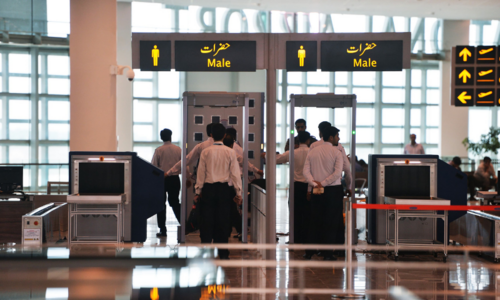ISLAMABAD: While Pakistan has relaxed curbs related to Covid-19, Health Services Academy Vice Chancellor Prof Dr Shahzad Ali Khan on Tuesday said cases may surface again during winter as chances of the virus mutating increases during low temperature.
The virus may affect people who have not been vaccinated, Dr Shahzad said, adding that this is the reason more and more people must get vaccinated at the earliest. He urged the government to increase surveillance of positive cases.
Dr Khan was speaking to participants of an event titled ‘Covid-19 Test and Treat Advocacy in Pakistan’ organised by Shifa Foundation Pakistan in collaboration with Foundation for Innovative New Diagnostics (FIND) and Unitaid.
“In China, there is quarantine between cities which means that a person has to complete a quarantine of seven days before travelling to another city and then quarantine for another seven days after reaching the destination even within the country,” he said, adding that mutation could be positive and negative but stakeholders of the health sector should be ready to deal with negative mutation.
Says virus may affect non-vaccinated people
“However, I want to say that chances of mutation will be more in unvaccinated people so people should be vaccinated and those who are already vaccinated should go for booster shots. There is also need to increase surveillance of positive cases as they can become the reason of rapid spread of the virus,” Dr Khan said.
The participants were informed that Shifa Foundation conducted several meetings with key stakeholders including religious leaders, teachers, doctors and community elders to seek their support in raising awareness to motivate people for test and treat in already available centres at health facilities.
“Around 170 community sessions were conducted in different areas and teams reached out to more than 4,220 beneficiaries including 2,681 women to mobilise and sensitise them regarding Covid-19 Test and Treat. To further strengthen the mobilisation campaign, social and digital media like Facebook, Instagram, Twitter and Linkedin were also used for broader coverage and reached to 5.6 million people.
“Animated audio/videos messages, information and standard operating procedures (SOPs) about Covid-19 have also been shared on dedicated social media pages to raise awareness and provide easy and speedy access to masses,” participants were told.
National Coordinator World Health Organisation (WHO) Dr Hassan Urooj suggested that the department of education should play its role by arranging Covid-19 vaccination drives in schools.
He added that the admission of students should be subject to Covid-19 vaccination.
Published in Dawn, October 26th, 2022













































